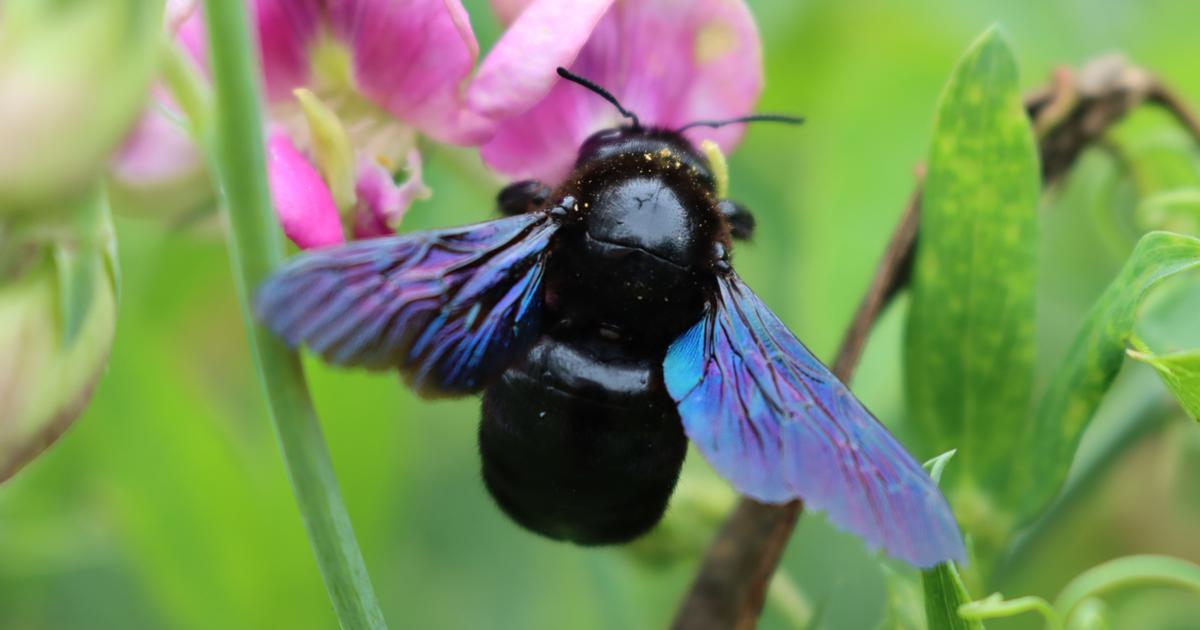The constantly changing weather affects insects in the district enormously.
Many are even threatened with starvation.
Bad Tölz / Miesbach - The weather is currently going up and down the mountain: Sometimes it's nice and almost summery warm, but then the cold comes again and even brings snow to lower altitudes.
It's been like this since the end of February.
What stresses people also affects bee colonies considerably.
The insects are therefore threatened with starvation, reports Uwe Karhan, board member of the district beekeepers Bad Tölz-Miesbach, when asked by the Tölzer Kurier.
Basically, says Karhan, the bees start to fly as soon as the weather is warm and flowers pop up.
“It was so nice at the end of February and before Easter, for example, the hazelnut started to bloom.” The bees are currently also producing offspring and need fresh pollen to feed the brood.
But when it was cold again - i.e. below ten degrees - they could no longer fly out to collect pollen.
"It's not just cold for a short time, but rather a longer phase, alternating with very warm temperatures," says the bee specialist.
Cold weather in the district affects the insects
So the bees don't have enough food in the hive anymore.
"Or they take care of their small brood nest and can no longer reach the removed supplies," Karhan explains, simplifying the inner workings of the beehive.
"If the animals run out of pollen or honey in their hive, they are threatened with starvation."
As a beekeeper you now have to constantly check and feed the animals' stocks.
But that too is associated with a certain risk.
After all, the inside of the hive, with the brood, was around 35 degrees.
"If I open the hive, but it's only three degrees outside, it's not good for the bees," says Karhan.
“The brood has to be constantly warmed.” The current weather conditions mean a lot of work for the beekeepers, explains the expert.
"You need strong colonies for the first honey of the year," says Karhan.
American foulbrood broke out
Beekeepers who suffer a loss usually buy a new colony in the local area.
But caution is required at the moment: “The American foulbrood broke out north of Wolfratshausen,” says Karhan.
The disease is notifiable and the beekeepers concerned must notify the veterinary office.
Karhan advises all beekeepers to have an up-to-date bee health certificate presented when buying, so that there is no rude awakening later.
Beekeepers in the Tölzer Land have a lot of work
Is this all a bad sign for the new honey year? Karhan does not want to speculate: “It could be a good year.” The many beekeepers in the region are currently unable to meet for meetings due to the pandemic. As Karhan reports, the district association has decided to donate 500 euros each to the two local clubs in Lenggries and Gmund for construction work on the club houses. In addition, they and the local associations in Bad Tölz and Benediktbeuern each receive 150 euros from the district association as a small consolation for money from missed events. The district association only includes these four local groups from the two districts.
Bad Tölz newsletter:
Everything from your region! Our brand new Bad Tölz newsletter informs you regularly about all the important stories from the Bad Tölz region - including all the news about the corona crisis in your community. Sign up here.










/cloudfront-eu-central-1.images.arcpublishing.com/prisa/KMEYMJKESBAZBE4MRBAM4TGHIQ.jpg)



